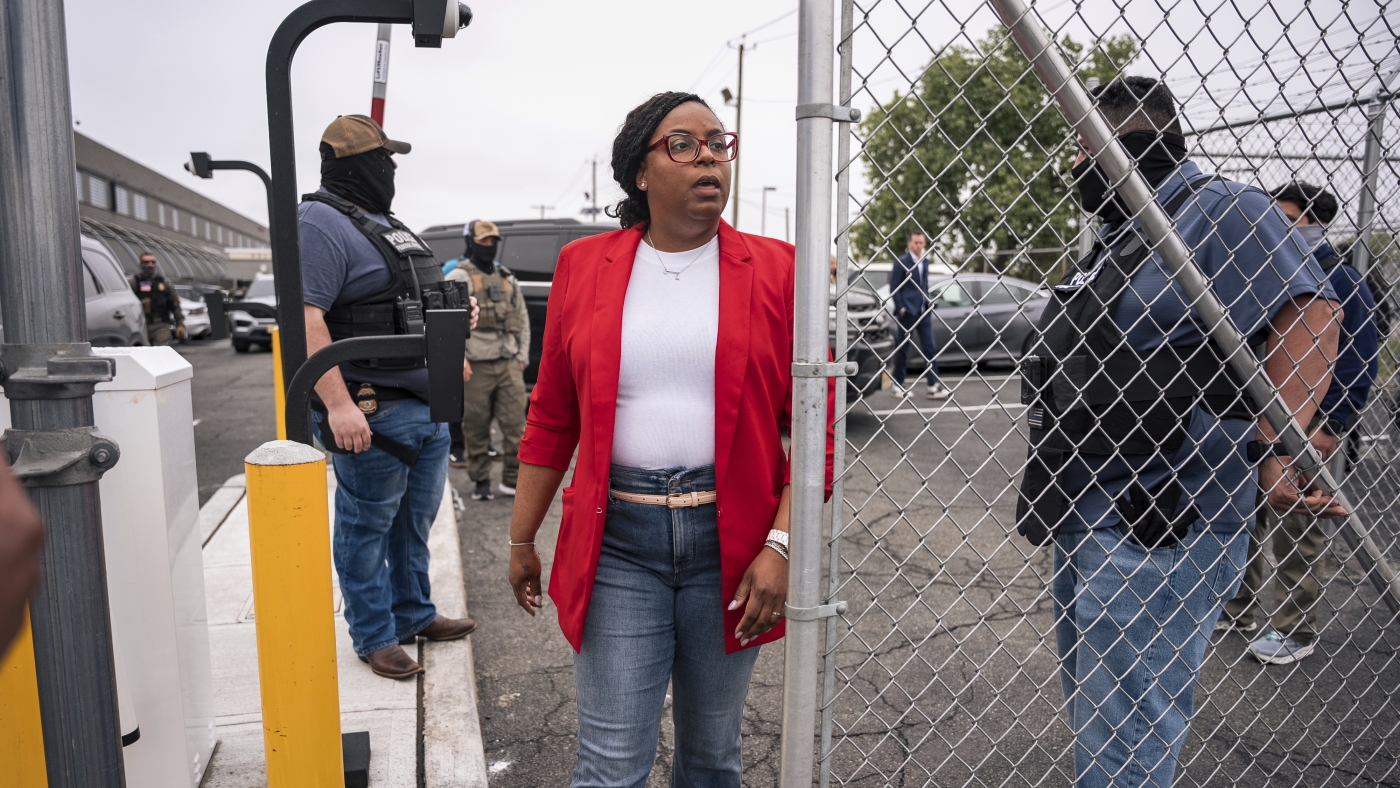Navigating Legal Turbulence: The Indictment of Rep. LaMonica McIver
The recent federal indictment of Representative LaMonica McIver serves as a vivid example of the complex interplay between political activism, immigration oversight, and federal law enforcement. It unpacks a narrative charged with legal, political, and ethical dimensions that demand careful exploration.
Unraveling the Incident at Newark’s ICE Facility
The core of this controversy traces back to a May 9 visit by Rep. McIver and fellow lawmakers to an Immigration and Customs Enforcement (ICE) detention center in Newark. Ostensibly a routine congressional oversight mission to assess detainee conditions, the visit escalated into a physical confrontation. Federal authorities assert that McIver went beyond the bounds of peaceful observation, allegedly obstructing federal officers as they attempted to arrest Newark Mayor Ras Baraka. The indictment portrays a scene where tensions spilled into assault, marking a critical legal inflection point.
This alleged physical interference with law enforcement highlights how oversight missions can transform into flashpoints when sovereign authority confronts dissent and advocacy. The line between protest and obstruction, in such environments, becomes precariously thin.
Legal Charges and Their Gravity
The indictment accuses McIver of multiple federal offenses centered on forcibly impeding officers during their official duties. Although exact statutes are not specified publicly, charges of this nature typically invoke provisions against obstruction of justice and assault on federal officers. The maximum sentence of up to 17 years underscores the severity with which federal entities regard the incident.
The legal stakes for McIver are substantial. Her declared intent to plead not guilty signals a forthcoming legal contest that may probe the limits of congressional immunity, the permissibility of protest actions during oversight, and the scope of federal enforcement authority.
Political Fallout and Public Perceptions
Public reaction to the indictment has swiftly polarized. McIver’s characterization of the charges as potentially politically motivated suggests a clash extending beyond legal facts to the realm of political theater. This rhetoric taps into broader national debates, where immigration enforcement is a lightning rod for contention between civil liberties advocates and law enforcement proponents.
Notably, the dropped trespassing case against Mayor Baraka introduces questions about prosecutorial discretion and selective enforcement, elements that often fuel suspicion of political bias. This underscores the case’s resonance within discussions about fairness, justice, and political influence in prosecutorial decisions.
Immigration Oversight vs. Federal Enforcement: A Delicate Balance
At its heart, this incident spotlights the delicate balance between congressional oversight responsibilities and federal law enforcement mandates. ICE facility visits by members of Congress are routine but fraught, as they pit advocacy goals against operational authority. McIver’s indictment reveals the friction embedded in this dynamic, emphasizing how oversight can sometimes escalate into confrontations with significant legal repercussions.
This situation also raises critical considerations about how future oversight endeavors might be shaped by fears of legal retaliation. The deterrence effect on congressional actors could impact transparency and accountability in immigration enforcement practices, a vital public interest.
Conclusion: A Defining Moment for Congressional Oversight and Enforcement Boundaries
Rep. LaMonica McIver’s indictment encapsulates a moment of intense conflict at the crossroads of law, politics, and social advocacy. The case is more than a legal proceeding; it’s a prism through which we examine the limits of protest, the reach of federal authority, and the evolving nature of congressional oversight in contentious policy arenas.
As this story unfolds, it will test the resilience of democratic principles such as accountability and free expression within the context of law enforcement. The stakes are high, and the implications reach far beyond one individual, touching on fundamental questions about power, justice, and governance in contemporary America.

